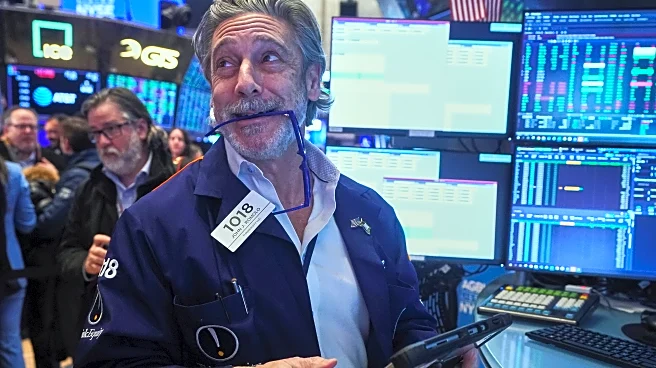What's Happening?
HM Revenue and Customs (HMRC) has announced plans to enhance its digital infrastructure and data flows to better understand the economic affairs of billionaires and wealthy individuals. This initiative
aims to close a nearly £2 billion gap in tax collection from the UK's wealthiest taxpayers. The department is establishing a Wealthy Complex Cross Tax and Offshore Team, which will be staffed by 120 people by March 2026. This team will utilize new technology and various data sources, including national newspaper rich lists, to improve tax compliance and bring in additional revenue. HMRC's efforts are part of a broader strategy to address tax risks associated with offshore assets and complex financial structures.
Why It's Important?
Improving tax compliance among billionaires is crucial for ensuring equitable tax contributions and reducing the tax gap. By leveraging digital tools and data analytics, HMRC aims to enhance its ability to monitor and assess the financial activities of the wealthiest individuals, potentially increasing tax revenue by hundreds of millions of pounds. This initiative reflects a growing trend among tax authorities worldwide to use technology to address tax evasion and improve transparency. The focus on offshore assets and complex trusts also highlights the challenges in tracking and taxing wealth that is often hidden or difficult to assess.
What's Next?
HMRC plans to continue investing in digital infrastructure and case-management systems to improve targeting and compliance work. The department will also expand its counter-fraud capabilities, aiming to increase the number of annual charging decisions related to tax fraud by 20% by 2029/30. This will involve tackling fraud committed by wealthy individuals and those facilitating offshore tax evasion. The initiative may lead to increased scrutiny and audits of high-net-worth individuals, potentially resulting in more legal actions and penalties for non-compliance.
Beyond the Headlines
The focus on billionaires and wealthy individuals raises questions about privacy and the balance between tax enforcement and individual rights. The use of third-party data sources, such as rich lists, may lead to debates over the accuracy and fairness of such assessments. Additionally, the initiative could prompt discussions on the ethical implications of wealth concentration and the role of tax policy in addressing economic inequality.










